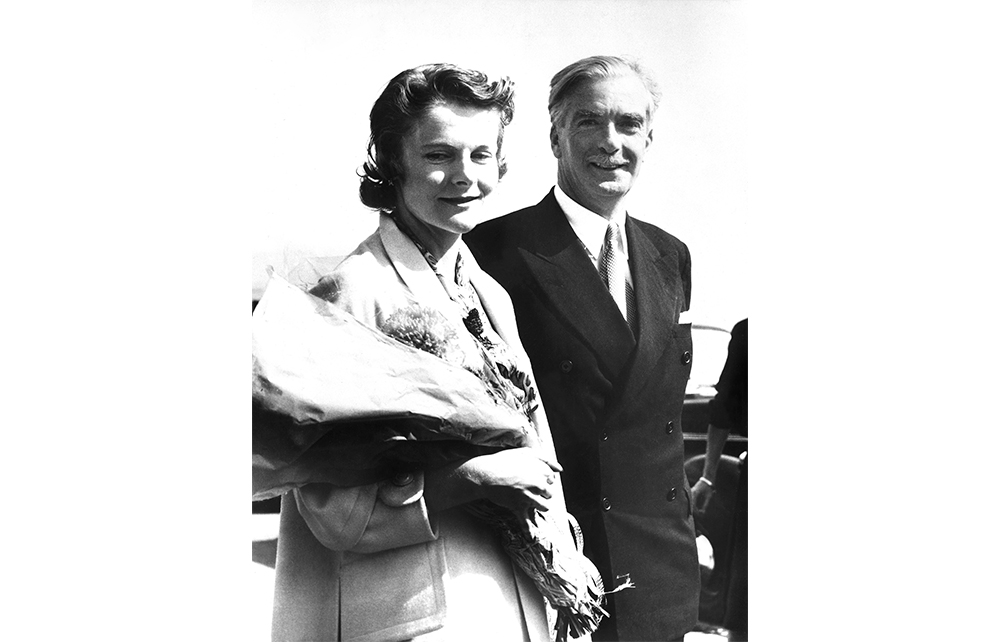Clarissa Churchill – as she was known until her marriage to Sir Anthony Eden – was brought up in a now vanished privileged world of intellectual, social and political London. In the introduction to his biography, Hugo Vickers provides a valuable roll-call of names. Those still living who knew Clarissa have proved invaluable sources of information, though a note of unconscious humour sometimes slips in – as when Antonia Fraser comments: ‘I was not quite glamorous enough for her’ (‘quite’ being the operative word).
Born in 1920, Clarissa began life with the ostensible advantage of being a Churchill, the niece of Winston. In fact this was not the case: her real father was Harold Baker, known as ‘Bluey’, a scholar, barrister, Liberal politician and friend of H.H. Asquith’s eldest son Raymond. Elected for Accrington in 1910, Baker was very much at home in Downing Street and would go on to serve as financial secretary at the War Office. But after Lloyd George split the Liberal party, he failed to win his seat back. He never married and remained a disappointed man in many ways. On his death in 1960 he left his daughter £3,000 and a cottage near Winchester, where he had become Warden of his old college.
Clarissa worked hard at school in London, and by the age of 17 had read, among others, Kafka, Descartes, Berkeley and Hume, with Kant a favourite. On the outbreak of war she did not hurry off, like most Churchills, to find employment of some kind (though she later worked in the cypher department at the Foreign Office), but moved to Oxford – not as an undergraduate but as a kind of privileged fellow traveller. There her friend Julian Oxford, the grandson of H.H. Asquith, introduced her to Isaiah Berlin, and she also enjoyed the friendship and welcome hospitality of the eccentric musician Lord Berners. But perhaps her greatest love in those years was Jeremy Hutchinson, later a successful barrister who usually defended the underdog. This, however, came to an end when he married the actress Peggy Ashcroft.
After the war, Clarissa took a job at Vogue, and later at Contact, a magazine started by George Weidenfeld, who became a close friend, as did Cecil Beaton. Other admirers included the ill-fated James Pope-Hennessy, who spoke his mind to her more freely and revealingly than to most, and the luxurious, charming Raimund von Hofmannsthal, with whom she conducted a full-blown affair. Her real character usually remains hidden throughout these adventures; but Diana Cooper, generally tolerant of her husband’s many mistresses and often fond of them, thought Clarissa ‘cold, aloof and bad mannered’. Others also found her abrupt and chilly. If people bored her, she seldom took the trouble to discover whether they might in fact have something to offer, and she seems to have felt a sense of entitlement to the good things that came her way.
Her final success was with Anthony Eden, foreign secretary before and after the war and painfully kept waiting for the premiership by Churchill’s many prevarications. They married in 1952, and for the next few years Clarissa was a strong but discreet political figure in Downing Street, though there were some who accused her of ignorance and interference.
The book’s subtitle, ‘Muse to Power’, is misleading. Clarissa was not a muse: she did not inspire. But her wide reading and perceptive gifts made her valued company for a wide range of friends; and after her husband’s cruel series of operations, each necessitating a further one, she devoted herself unsparingly to his care. They sometimes wintered in the Caribbean, and were invited by well-wishers to other spots where the weather was warmer.
It is hard to think of another living author with such a wide knowledge of Clarissa’s world, and Vickers’s diligent, skilful biography is unfailingly readable.







Comments